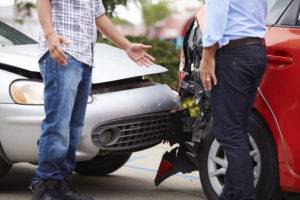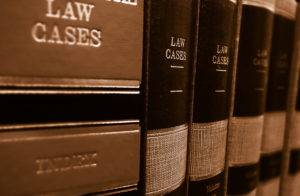Florida’s Good Samaritan Act legally protects bystanders who provide assistance to sick or incapacitated individuals during emergencies. This law protects the person providing aid from liability in case complications arise during their aid efforts.
Florida’s Good Samaritan Law
Florida’s Good Samaritan Law was enacted in 2023. This is the definition of the law, what’s covered under it, its purpose and its relationship to other Good Samaritan laws.
Definition of the Law
According to Florida Statute 768.13, the Good Samaritan law means anyone rendering help to a person suffering a medical emergency is immune from civil liability. A person can administer aid regardless of whether they are a doctor or other medical professional.
Coverage of the Law
The Good Samaritan law covers whether a person rendering aid to someone in a medical emergency can be sued if something goes wrong. For example, according to Florida Statute 893.21, if a person acts in good faith to assist someone who appears to be having a drug overdose, they cannot be prosecuted for offenses like drug possession.
Purpose of Good Samaritan Laws
The purpose of good samaritan laws is to encourage people to help those in medical emergencies. This is to ensure they get help before getting to a hospital.
Relationship to Other Good Samaritan Laws
Florida’s Good Samaritan law shares similarities with other such laws throughout the country. The relationship between them is that people acting in good faith are shielded from civil action if harm occurs. This doesn’t extend to gross negligence.
Need free legal help in Florida?
We specialize in personal injury claims.

History of Florida’s Good Samaritan Law
Florida’s Good Samaritan law has a specific history. This includes its origin and amendments.
Origin of the Law
The origins of the Good Samaritan law go back to biblical times. A good samaritan is a person who helps someone without expecting anything in return.
Amendments to the Law
Some good samaritan laws have had amendments. One can be found in the Bill Emerson Food Donation Act, and another applies to laws about helping individuals believed to be having an overdose.
Scope of Protection
Florida’s Good Samaritan law has a scope of protection. It’s important to know who is protected under the law, types of situations covered by it and specific exclusions or limitations.
Who Is Protected Under the Law
The Good Samaritan law protects certain people. This includes bystanders or passersby, medical professionals, trained personnel and people with specialized skills.
Bystanders or Passersby
Bystanders or passersby are not obligated to help someone in medical distress. However, they cannot be held liable if they choose to assist a person.
Medical Professionals
Medical professionals rendering medical aid to a person in good faith are exempt from legal action. This applies as long as they act as any reasonable medical professional would in similar circumstances.
Trained Personnel
Trained personnel who assist a person in an emergency are immune to civil action. If the victim experiences complications or harm, these people aren’t liable.
People with Specialized Skills
People with specialized skills are protected under Florida’s Good Samaritan law. They cannot be sued if they aid someone in a medical emergency that goes awry.
Types of Situations Covered by the Law
The Good Samaritan law covers certain situations. For example, individuals assisting those believed to be in distress from alcohol or drugs are protected from being held liable.
Specific Exclusions or Limitations
There are certain exclusions or limitations to Florida’s Good Samaritan law’s protections. If someone attempts to help a person suffering an emergency and exhibits gross negligence, they can be held liable. For example, a medical professional provides a substandard level of care and the person becomes severely injured or dies.
Requirements for Protection Under Florida’s Good Samaritan Law
There are certain requirements for protection under the Good Samaritan law. Specific conditions must be met and there are examples of when the law applies.
Conditions That Must be Met for Protection
Under the Good Samaritan law, a person is immune from civil liability when acting in good faith to assist someone in a medical emergency. They must provide the same aid any reasonable person would in the same situation.
Examples When the Law Applies
There are examples when the Good Samaritan law applies. One is when someone suffers a heart attack and a bystander properly performs CPR on them and breaks ribs.
Need free legal help in Florida?
We specialize in personal injury claims.

Criticisms and Debates Surrounding the Law
There are criticisms and debates surrounding the Good Samaritan law. This includes arguments in favor of it and arguments against it.
Arguments in Favor of the Law
One common argument favoring the law is it encourages helping people. Another is that it protects people from liability.
Arguments Against the Law
There are arguments against the Good Samaritan law. Usually, this involves its limited scope of assisting people in emergency medical situations but not in other scenarios.
Frequently Asked Questions
What Is the Good Samaritan Rule in Florida?
The Good Samaritan rule shields anyone acting in good faith administering emergency care to someone from liability.
What Is the Good Samaritan Law in Florida for CPR?
Florida’s law says that a person cannot be held liable for performing CPR on someone suffering a medical emergency if they break the individual’s ribs.
Is Overdose a Good Samaritan Law in Florida?
People helping others during overdoses are protected by the Good Samaritan law. They cannot be penalized.
Does the Good Samaritan Law Protect Nurses in Florida?
Florida’s Good Samaritan law protects nurses who help someone in a medical crisis.
What Is the Rescue Doctrine in Florida?
Florida’s Rescue Doctrine helps rescuers injured while attempting to help others. It allows them to recover damages from those responsible for the situation requiring rescue.
Are You Allowed to Do CPR if You Are Not Certified?
You can do CPR even when not certified if used to help someone in a medical emergency.
What Is the Good Samaritan Rule in the United States?
The Good Samaritan rule in the U.S. protects people who provide first aid to those suffering medical emergencies.
What Is an Example of the Good Samaritan Rule?
An example of the Good Samaritan rule is a person pulling someone from a car wreck. The victim’s injuries worsen from being moved.
What Is the Good Samaritan Law for Food in Florida?
According to Florida Statute 768.136, there is also a Good Samaritan law for food. It means when someone donates food in good faith and a person suffers illness from that food, the donor cannot be held liable.
What Is the Sudden Emergency Doctrine in Florida?
Florida’s Sudden Emergency Doctrine says people acting in good faith to help others in medical emergencies cannot be held liable.
What Is the 893.21 Law in Florida?
Florida’s 893.21 law states a person seeking medical attention for a person having a drug overdose is immune from prosecution for drug-related offenses.
Who Is Not Protected by the Good Samaritan Law?
Those acting with gross negligence or willful recklessness are not protected by the Good Samaritan law.
Who Does the Good Samaritan Law Protect?
The Good Samaritan law protects people who act in good faith to help others in emergencies without expecting compensation.
Need free legal help in Florida?
We specialize in personal injury claims.






